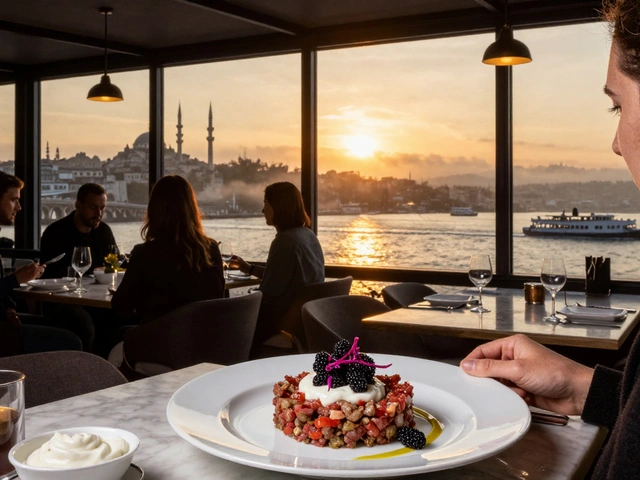Top 5 Souvenirs to Bring Home from Istanbul’s Grand Bazaar
Discover Istanbul's top 5 Grand Bazaar souvenirs with local tips, price ranges, authenticity checks, and shipping advice for residents and visitors alike.
When you wander through Grand Bazaar souvenirs, the small treasures you can bring home from Istanbul’s historic market. Also known as Kapalıçarşı gifts, they give a taste of Turkish culture without taking up too much luggage space. The Grand Bazaar a sprawling covered market with more than 4,000 shops serves as the backdrop for every souvenir hunt, and the variety of Turkish souvenirs hand‑crafted items like ceramics, textiles, and spices makes it easy to find something that matches your style. Knowing that Grand Bazaar souvenirs encompass both traditional crafts and modern accessories helps you focus your search and avoid wandering aimlessly.
Most visitors end up buying three main types of items: woven carpets or kilims, hand‑painted ceramics (often featuring the iconic Iznik patterns), and spice blends tucked into colorful tins. Each category has its own set of clues for authenticity. A genuine carpet will have a detailed label with the weaver’s name, knot count, and region of origin, while real Iznik plates show a vivid cobalt blue underglaze and a distinct brush‑stroke finish. Spices should smell fresh and be stored in airtight containers; if they’re pre‑packed in plastic, they’re likely lower‑quality. The market also offers leather goods, jewelry, and lanterns, but these tend to be pricier, so it’s worth comparing a few shops before committing. Bargaining is a skill, not a gamble. It starts with a friendly smile, a polite “How much?” in Turkish ("Ne kadar?") and then offering roughly half the asking price. The seller will counter, and after two or three rounds you’ll land near a fair middle ground. Remember, the goal isn’t to win aggressively but to enjoy the back‑and‑forth; a respectful tone often earns a better discount and a souvenir with a story. Keep in mind that some high‑end shops have fixed prices, so if you spot a label that says “no bargaining,” move on to the next stall.
Beyond price, consider where you buy. Stores near the main entrances often charge more, while the deeper alleys host family‑run ateliers that take pride in craftsmanship. Ask the shopkeeper about the item’s origin; a quick story about a village or a family tradition not only enriches your purchase but also signals that the seller values authenticity. Finally, check the return policy—most reputable vendors will offer a simple exchange if the item arrives damaged.
Armed with these tips, you’ll walk away with souvenirs that truly reflect Istanbul’s spirit. Below you’ll find a curated list of articles that dive deeper into specific gifts, bargaining anecdotes, and hidden spots inside the Grand Bazaar where the best finds await.
Discover Istanbul's top 5 Grand Bazaar souvenirs with local tips, price ranges, authenticity checks, and shipping advice for residents and visitors alike.

Discover what it's really like to hire an ebony escort in Istanbul-beyond the stereotypes. Learn about authentic experiences, pricing, safety tips, and how to find trustworthy companions who offer more than just physical connection.

Discover practical, locally rooted eco-friendly family activities in Istanbul-from farmers' markets and ferry rides to tree planting and swap days-that help build a greener lifestyle without leaving the city.

This article sheds light on the world of milf escort services in Istanbul, breaking down the myths and sharing practical guidance for those curious or interested. Get the real scoop on what sets these experiences apart—plus tips for finding reliable services, what sessions are like, and how to stay safe. You’ll also find helpful info about pricing, neighborhoods, and booking etiquette. Whether you’re a local or a visitor, this is your go-to guide for navigating Istanbul’s mature escort scene. Learn how to make smart decisions and enjoy the city’s adult entertainment options without hassle.

Discover Istanbul’s most unique dining experiences-from a 1,500-year-old cistern to a family-run canteen serving forgotten Ottoman dishes. These aren’t just restaurants; they’re living traditions.

Discover the most Instagrammable historical sites in Istanbul, handy tips for snapping standout photos, rich local culture, and hidden angles only locals know.